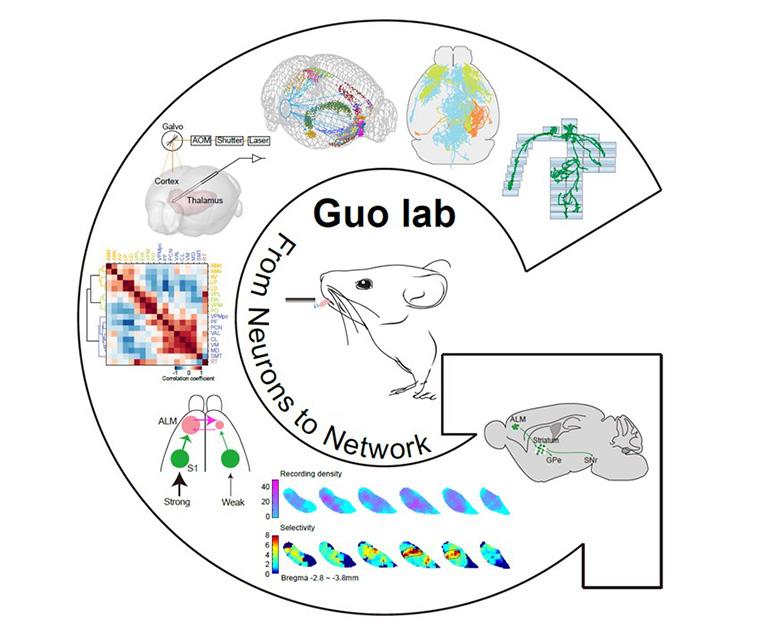Abstract
The temporal delay between sensation and action creates a critical window for cognitive processes such as working memory, decision-making, and motor preparation. This delay poses two fundamental challenges for neural systems: sustaining information across time, and learning to link sensory input with delayed action. Our research investigates motor preparation—a prospective form of memory—and the distributed brain networks that orchestrate this process in mice. We identified that basal ganglia-thalamic projections selectively modulate premotor activity to generate motor preparation-specific neural patterns. To facilitate the research involving a multi-regional network, we developed large-field-of-view calcium imaging techniques capable of simultaneously monitoring thousands of neurons across brain regions. Applying this approach to a sensory-guided detection task, we tracked neural dynamics throughout learning. Our findings reveal that the posterior parietal cortex plays a pivotal role in guiding sensorimotor transformation during early learning stages, by bridging sensation and action. These results advance our understanding of how distributed neural circuits overcome temporal delays to coordinate adaptive behavior, offering insights into the neural basis of cognition and learning.

Biography
Dr Zengcai Guo is an associate professor in the School of Basic Medical Sciences and a principal investigator in Tsinghua-PKU center for life science and IDG/McGovern Institute for Brain Science at Tsinghua University. He received his Ph.D. at Harvard University working in the field of applied mathematics, followed by a postdoc at Howard Hughes Medical Institute’s Janelia Research Campus working on the rodent premotor cortex. His research focuses on understanding the role of the multiregional brain network in motor preparation and learning.
